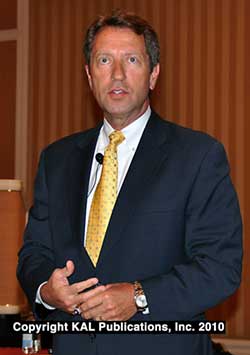Ultimately, where does the responsibility for a contaminated piece of property lie? With you, the property owner.
The starting point is insurance products do not cover pollution. Pollution is not an insurable event. So the starting question for you is what pollution endorsements have you added back into my policy? Because general policies have nothing to do with pollution.

State funds all differ. Many of them have sunset dates. How long will the state funds be here? The intent was a short-term fix. There are a variety of differences in features. Deductibles: in Idaho, Utah and New Mexico it's $10,000; in Washington, you're responsible for the first $75,000. In Nevada, it's 10% of whatever the cost is. Limits: most state funds have a $1 million limit. How they're funded. Coverages change. Most of the WPMA states, the fund cleans up your property and when it trickles off the property. In New Mexico, it covers only your property. If pollution leaves your property, it's up to the marketer to pay. Some states cover all tanks and some cover only underground storage tanks and leave it up to the marketer to cover aboveground storage tanks. Different agencies handle the cleanup funds in different states.
Private insurance marketplace is designed to fill in the gaps.
Potential areas of exposure:
Pollution needs typically fall into three categories:
Where do you turn if you have an event at your property?
Could this happen to you? You have a warehouse full of gasoline and lubes and a fire starts. The Fire Department comes and puts it out but they fill your warehouse with water and it washes down the street. Then the city comes back after you and they want you to clean up the pollution in the storm drains from the water washed down there by their own Fire Department employees. What do you do? You're responsible. The majority of fire events at automotive or petroleum facilities end up with a pollution claim.
You all know about tanker rollovers. 1 in 7 rollovers results in the death of a driver. They're a terrible tragedy. And the majority result in a pollution event. If this happens, what is your next step? There is probably more protection in your primary policy than other policies. But watch for pollution exclusions.
Buying excess coverage above State Fund coverage is very, very affordable and it's almost not worth not doing it.
Trade magazine publishing featuring a “hometown paper” approach to industry news, events, and the people who make it all happen.